Blog
Stay up-to-date on news and events in the transplantation community
Categories:
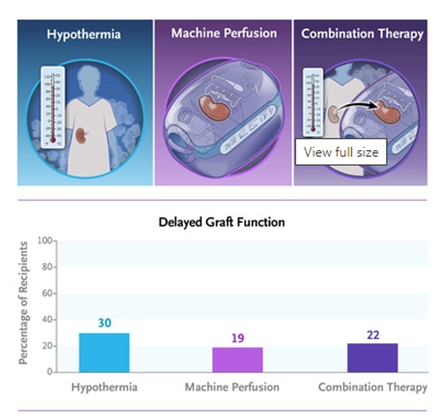
Therapeutic Hypothermia or Hypothermic Machine Perfusion (HMP) which is best for Kidney Transplant Outcomes?
In 2023, Malinoski et al. published the results from a pragmatic, adaptive, prospective, randomized trial that was conducted between August 10, 2017, and May 21, 2020 involving six OPOs in the US. They sought to determine whether targeted mild hypothermia is as...
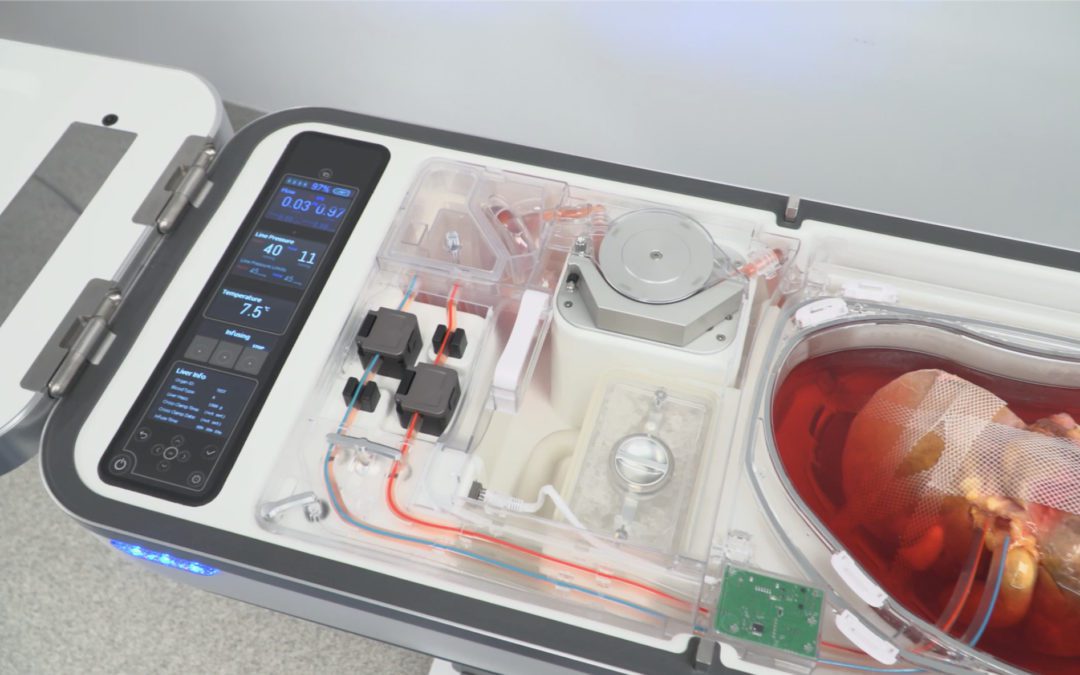
Business Wire—Organ Recovery Systems’ LifePort Liver Transporter Preserves First Livers for Transplant as Part of the PILOT Continued Access Study
We are proud to announce that the first livers have officially been transplanted using the LifePort®Liver Transporter as part of the PILOT™ Continued Access Study. The first livers preserved with the LLT under Continued Access were transplanted at University...
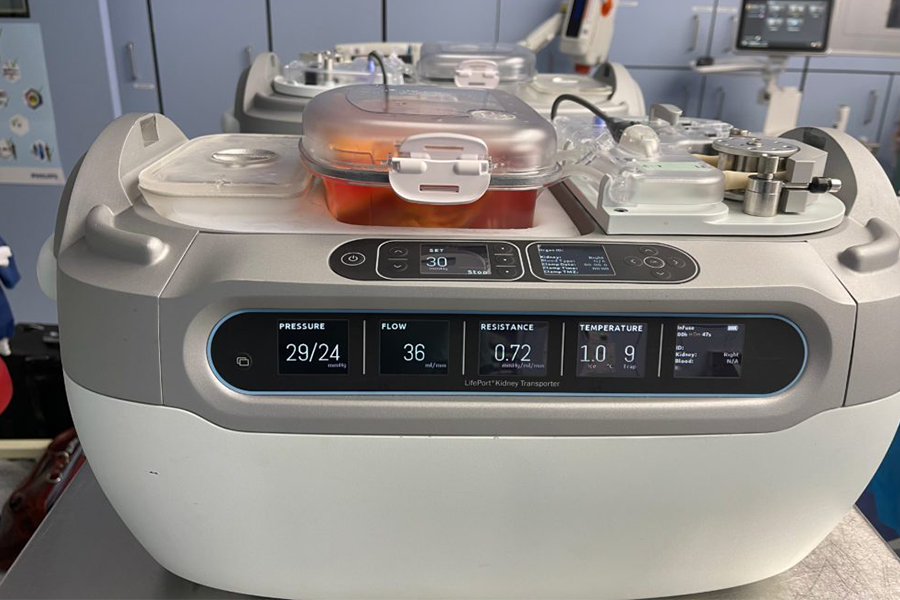
Business Wire—LifePort Kidney Transporter Awarded Exclusive Contract for Kidney Transplant Preservation Services in Belgium
We are proud to announce that the first kidney has officially been pumped using the LifePort Kidney Transporter in Belgium under a newly signed contract that names Organ Recovery Systems as the exclusive provider of kidney preservation services at seven transplant...
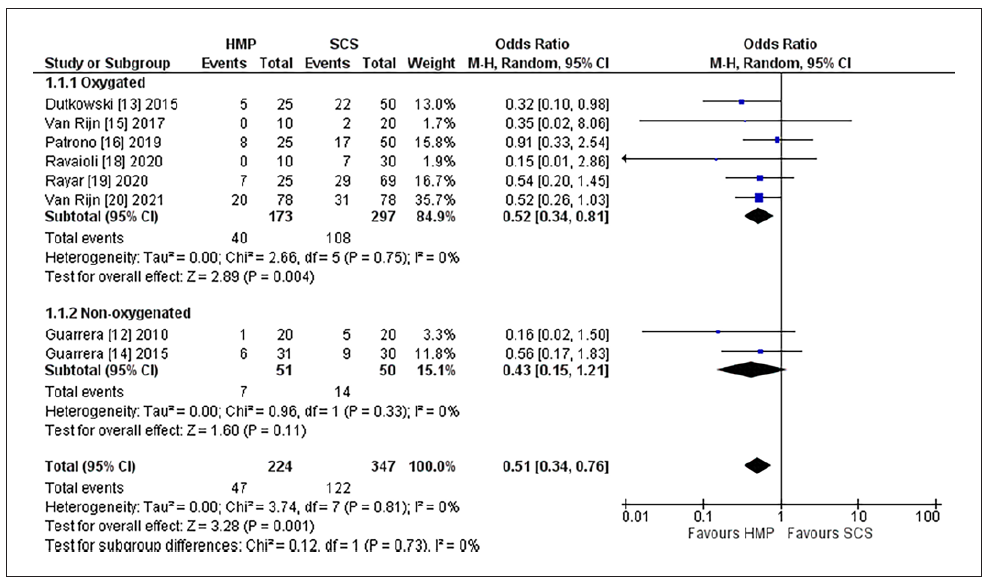
Machine Perfusion in Liver Transplantation: A Systematic Review and Meta-Analysis
A systematic review and meta-analysis by Jakubauskas et al. aimed to review the literature reporting liver transplant outcomes when using normothermic machine perfusion (NMP) or hypothermic machine perfusion (HMP) for organ preservation compared to static cold storage...

Gift of Hope Collaboration—Kidney Perfusion Videos
In collaboration with Gift of Hope Organ & Tissue Donor Network, we're proud to provide two videos around kidney perfusion on the Organ Recovery Systems Client Community! Kidney Perfusion Improves Transplant Success describes how Gift of Hope uses HMP technology...
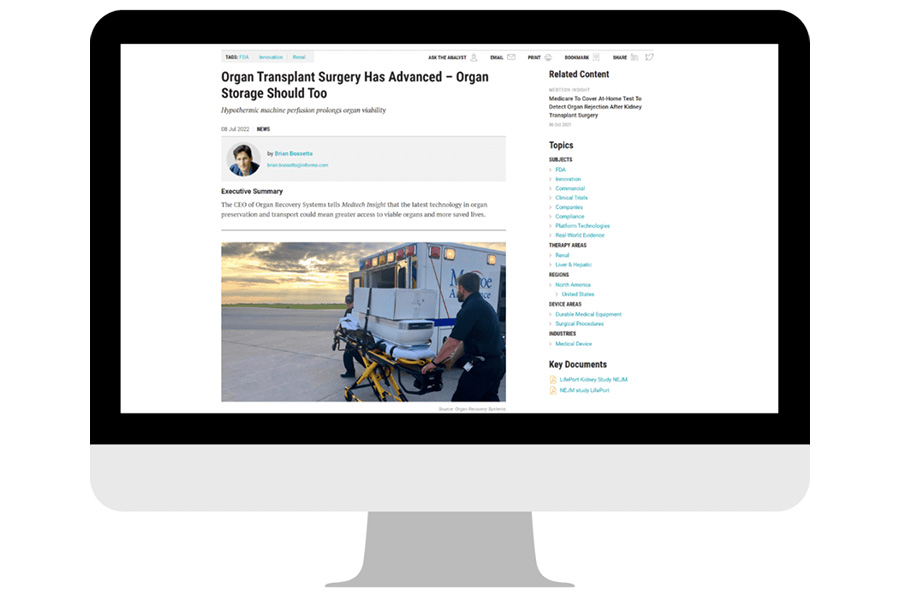
MedTech Insight—Organ Transplant Surgery Has Advanced – Organ Storage Should Too
In this article, MedTech Insight highlights machine preservation of donor organs with LifePort technology. By increasing utilization of donor organs and transporting them longer distances, LifePort systems may aid clinicians to make access to transplant more equitable...
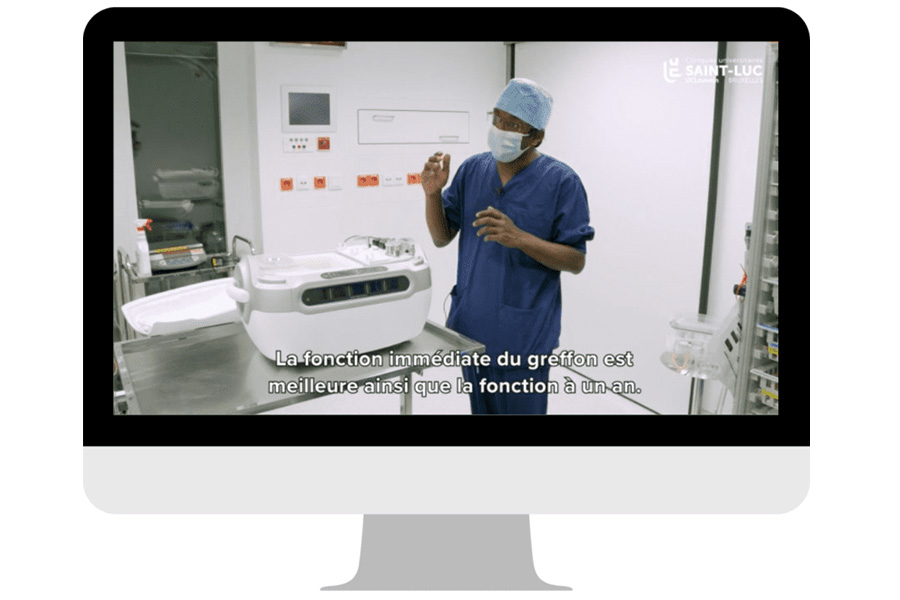
Saint-Luc—World first: new technique for preserving kidney grafts
We are proud to announce that Cliniques universitaires Saint-Luc transplanted the first kidney perfused in the LifePort Kidney Transporter after introducing supplemental oxygen! The link showcases an interview in French with kidney transplant surgeon Professor Tom...
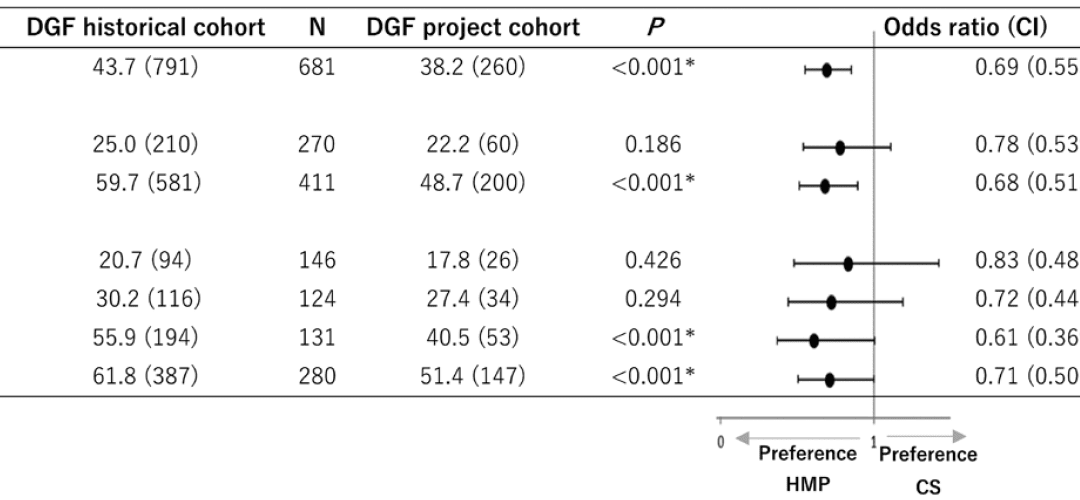
Hypothermic Machine Perfusion as a National Standard Preservation Method for Deceased Donor Kidneys
An article published in Transplantation by Brat et al. presented the evaluation of a 2-year project to implement continuous nonoxygenated hypothermic machine perfusion (HMP) as standard of care for all types of deceased donor kidneys in the Netherlands. The...
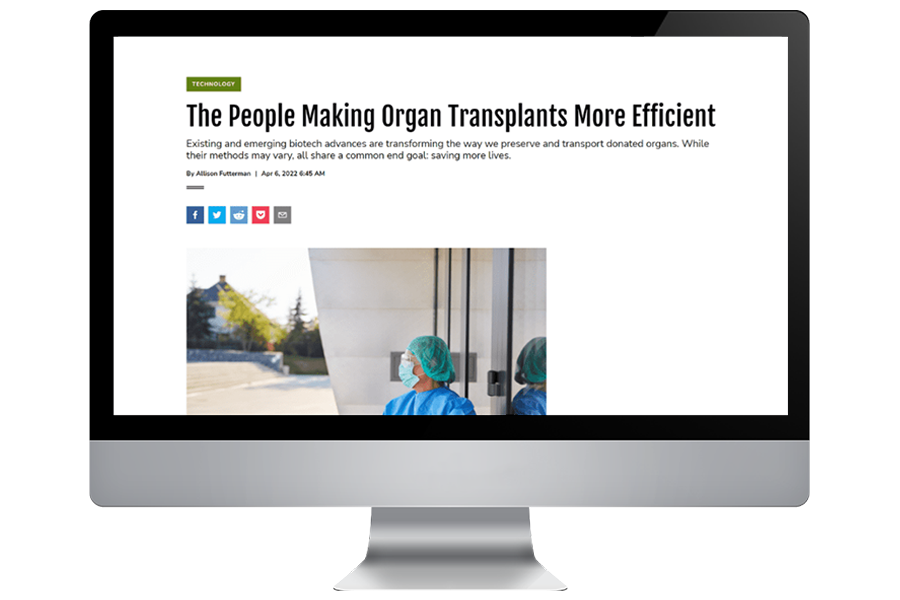
Discover Magazine—The People Making Organ Transplants More Efficient
In this article, Discover Magazine highlights how companies, such as Organ Recovery Systems, are transforming the way donated organs are preserved and transported. We're grateful to share our story, especially during National Donate Life Month! With the LifePort...

Hypothermic machine perfusion for liver graft preservation
A recent review article by Amin et al. focused on the mechanistic actions of hypothermic machine perfusion (HMP) in liver graft preservation, the clinical literature of HMP in liver transplantation and the future directions of clinical application of HMP in liver...

Outcome of liver transplantation with grafts from DBD donors treated with D-HOPE
In a single center, retrospective cohort study by Patrono et al., they sought to compare the effects of dual hypothermic oxygenated machine perfusion (D-HOPE) and static cold storage (SCS) on graft survival in liver transplant with grafts from extended criteria...
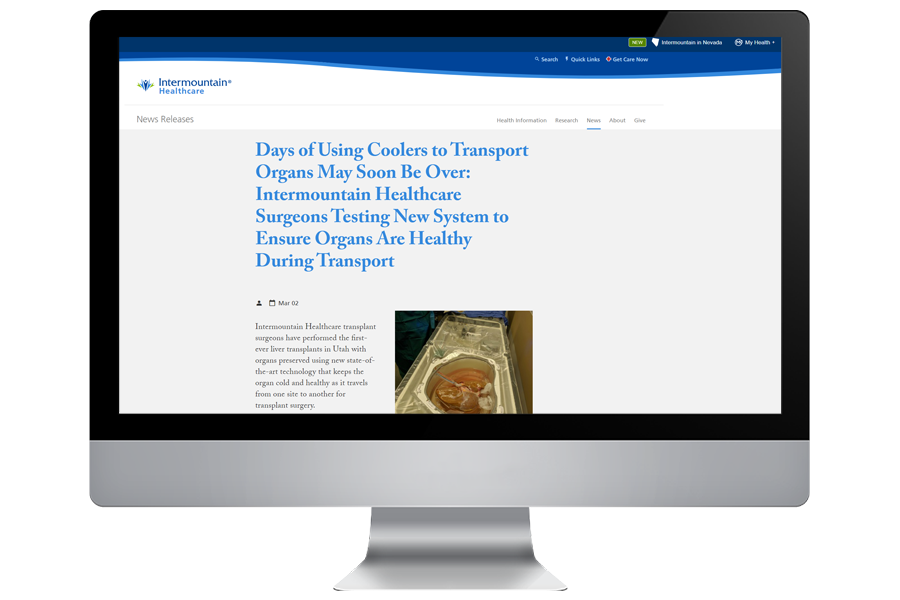
Intermountain Healthcare—Days of Using Coolers to Transport Organs May Soon Be Over
In this article, Intermountain Healthcare transplant surgeons perform the first ever liver transplants in Utah with organs preserved by the LifePort® Liver Transporter during the clinical trial, PILOT™. PILOT (Perfusion to Improve Liver Outcomes in...
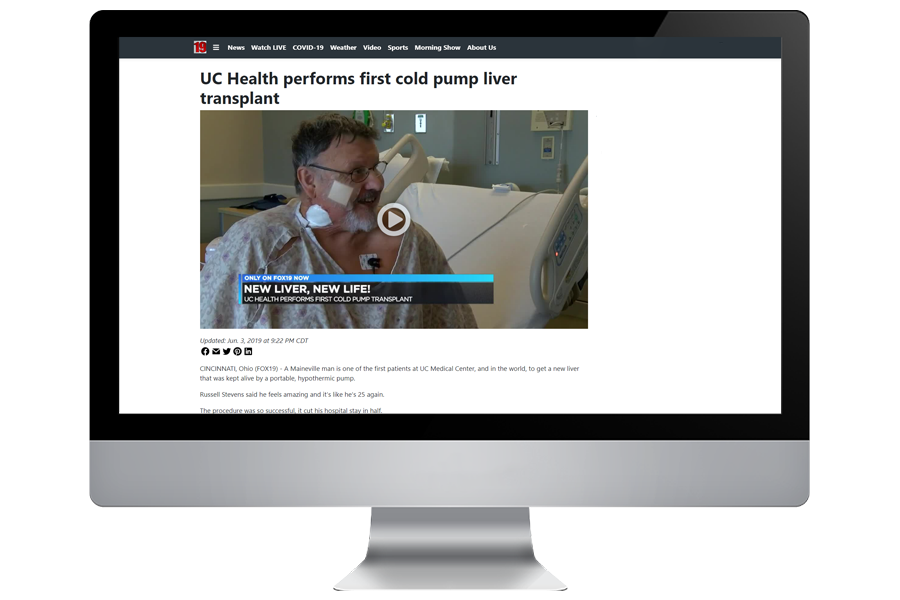
Fox19—UC Health Performs First Cold Pump Liver Transplant
In this article from FOX19 NOW, meet the first liver transplant patient to receive a cold pump liver which was pumped on a LifePort® Liver Transporter during its clinical trial, PILOT™. PILOT (Perfusion to Improve Liver Outcomes in Transplantation) is a...
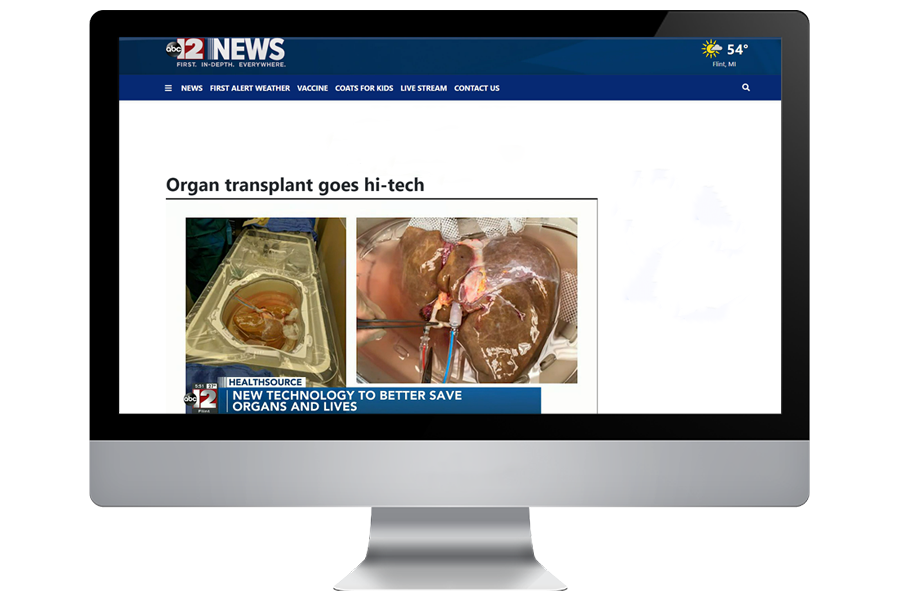
ABC12 News—Organ Transplant Goes Hi-tech
In this article, Intermountain Healthcare takes part in the PILOT™ clinical trial of the LifePort® Liver Transporter. PILOT (Perfusion to Improve Liver Outcomes in Transplantation) is a prospective randomized multi-center oxygenated hypothermic machine...
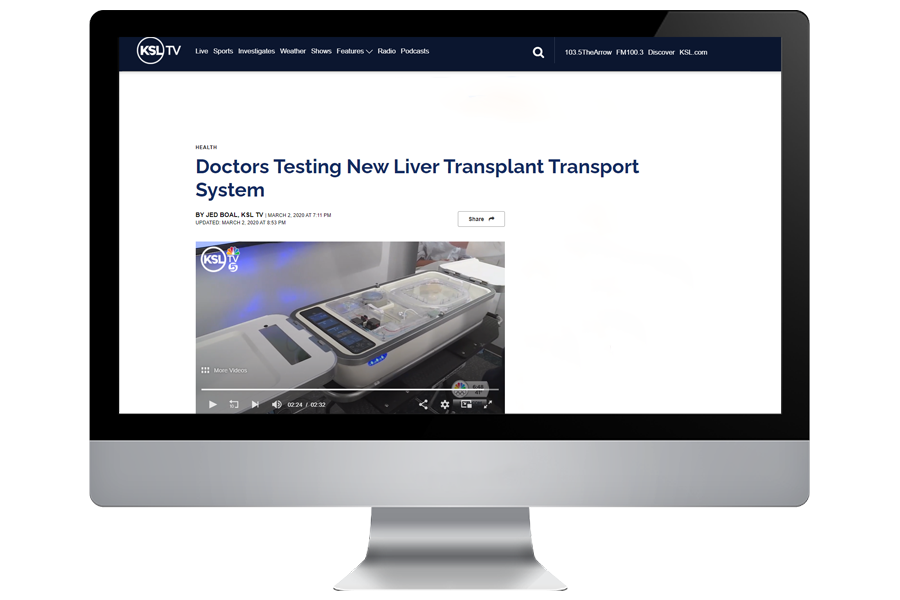
KSLTV—Doctors Testing New Liver Transplant Transport System
In this article, KSLTV of Salt Lake City reports on Intermountain Healthcare’s participation in the LifePort Liver Transporter clinical trial. “We’re keeping that liver working in a somewhat normal, physiologic state during the time that it’s out of the donor’s body...
University Hospital—University Hospital Performs First Transplant with Machine Preserved Liver in the State of New Jersey
In this press release, University Hospital announces the successful transplantation of a donated liver preserved by portable hypothermic machine perfusion, a first in the state of New Jersey. The liver was preserved using the LifePort® Liver Transporter during the...
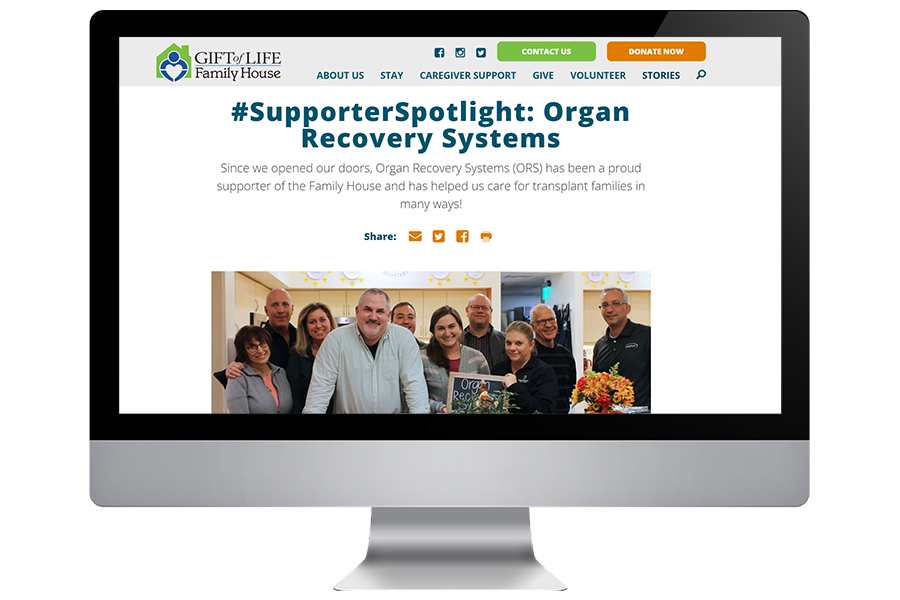
Gift of Life Family House—Supporter Spotlight
In this article from Gift of Life Family House learn how Organ Recovery Systems proudly supports the Family House and its mission to serve as a “Home Away from Home” for transplant families. “Supporting the transplant community is something I personally take to heart,...
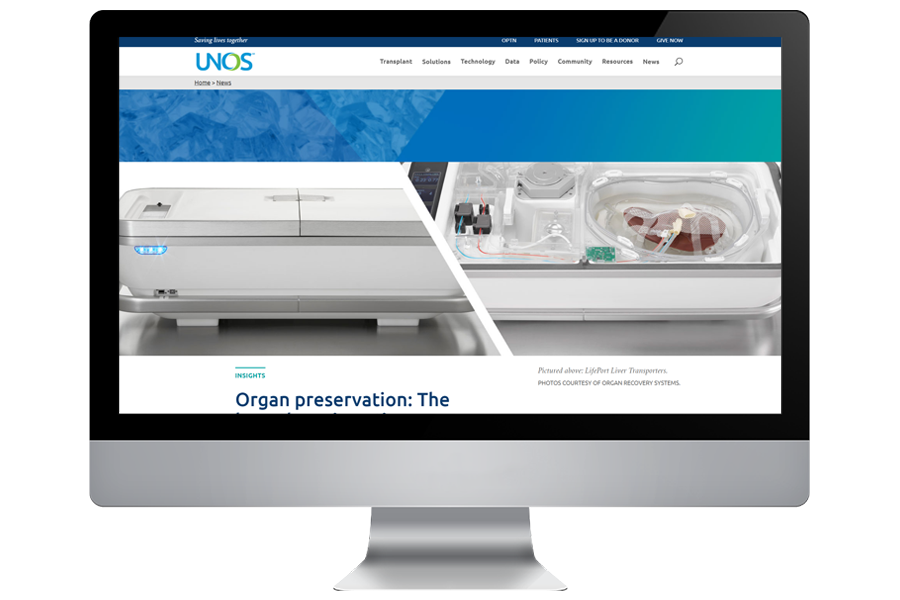
UNOS Insights—The Hypothermic Option
In this UNOS Insights article, learn the story behind Organ Recovery Systems and how LifePort® Liver Transporter was developed from the success of LifePort Kidney Transporter. “A company focused on organ preservation products and services; Organ Recovery Systems was...
